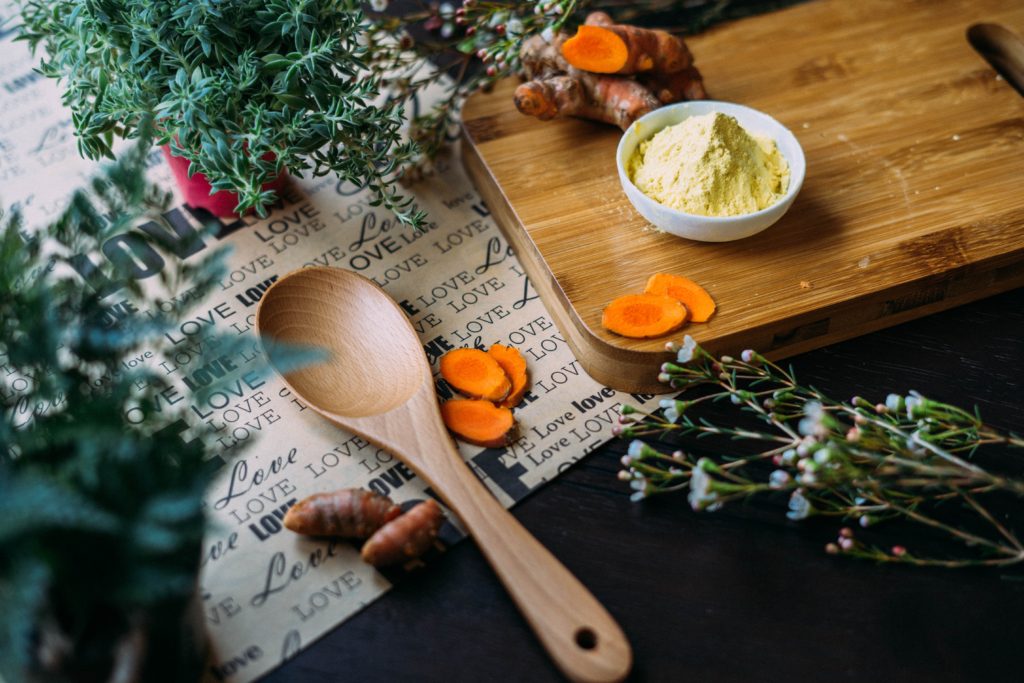by Shama Sara Palmer

The ancient science of ayurveda is gaining increasing popularity within and outside of India as a time-tested solution to many of our 21st century ailments. Many of us these days now know about doshas, the humours of ayurvedic medicine, and some of us have an idea of what our ayurvedic constitutional type is. We’ve read about vata, pitta and kapha, perhaps in books and magazines, during ayurveda treatments or even in our yoga classes.
Translating as
knowledge of life, ayurveda advises that lifestyle, what we eat, and how we eat it are the cornerstones of healthy, happy days. Lifestyle and our diet, ayurveda teaches us, will affect the functioning of our doshas, the intelligent managers of body function, and also of these three fellows: agni, ama, and ojas.
At a time when we are wanting more than ever to take care of our physical health, and in particular our immunity, I thought it would be beneficial to write a little for you about agni, ama and ojas, and how we can work with them to strengthen the body and boost the body's protective functions. All three are seen as critical to our health and well-being in ayurveda.
Agni is a Sanskrit term, translated as
fire. If we think about the element of fire, we can say it has the effect of penetrating a substance and transforming it into another substance. For example, we have all watched fire spread across a piece of paper and turn it into ash. Likewise, the agni, or fire in our body, transforms one substance into another. And so we speak of a digestive fire, or jathar agni in Sanskrit, which is that fire or power of the digestive system to break down and transform our foods for assimilation, separating and transforming the nutrient parts of our foods from those parts that are to be eliminated, Jathar agni is indeed the main agni in the body, though there are many agnis, there is the agni of the tissues and organs, and even an agni within the cells, supporting the myriad of transformative processes throughout our system. Agni therefore is a critical factor in the overall health and strength of the body.
Ama on the other hand weakens the body's general health and well-being. The Sanskrit word ama translates as
uncooked or
immature. It is therefore a result of a weakened agni which has not been able to sufficiently "cook", or transform, the substances we ingest. We often translate ama therefore less literally as toxicity, a by-product of undigested foodstuffs remaining in our body. Products that are ingested but left unmetabolised and so unable to be used by the body sit in the body as toxic substances. If left to accumulate, ama can weaken body function, making us susceptible to disease and infection.
Therefore agni and ama are in effect the antithesis of each other. A strong agni supports good health, and a weakened agni results in ama which is the forebear of poor health, disease and susceptibility to infections.
Ojas is the result of a healthy, strong agni and minimal ama accumulation alongside an diet and lifestyle appropriate to the season and our ayurvedic constitutional type. Ojas translates in Sanskrit as
vigour or
bodily strength. Good ojas is therefore seen as synonymous with good immunity. From an ayurvedic perspective, our inner reserves of strength and vitality are a consequence of our ojas. It envisioned as a reserve of precious nectar, and a person with a lot of ojas will have a radiance that seems to shine from the inside out, a healthy glow, an abundance of energy and a magnetism to their persona.
There is an ojas that we get from birth, which is like an innate constitutional strength, and an ojas that we nourish and cultivate through lifestyle and diet. While we cannot do much about that which birth and genetics has given us, there is plenty we can do to optimise and support ojas (and so our immunity) through our daily habits. And all that we do to support our ojas, will by definintion mean we are living and eating in a way that optimises our agni function and reduces the levels of ama accumulating within us.
Ayurveda recognises that nature runs in cycles. There are the cycles of the seasons, of our age, of day and night, and of the moon. As human beings we are of course not separate from, but a part of nature. This means that our bodies change with the seasons, our digestive capacity changes according to the time of day, and our vital reserves change through the various stages of our life. Ayurveda would tell us that to attain our most natural birthright - health and happiness - we need to adapt our our daily living and dietary habits in accordance with these natural cycles.
There is much more to say about agni, ama and ojas and how to engage with these through a very comprehensive programme of self-care. For now, however, I have listed below twelve points to guide you toward adapting your daily life, including your eating habits, in ways that can help to optimise the state of your agni, ama and ojas and so your physical health and resilience. I hope you’ll try out these simple steps through the lockdown days ahead and I'd love to know how they work for you:
1) Rise early, close to sunrise, and sleep by 10pm.
2) Drink a glass of warm water on rising to help clear toxins from the system.
3) On waking, practice yogic sun salutationss and gentle stretching to awaken the circulation, stimulate the lymphatics and to set your nervous system for the day ahead.
4) Yogic breathing will deeply oxygenate your cells promoting cellular vitality and also help to balance your autonomic nervous system (pacifying the fight-flight part of your system), building greater stress resilience. It will also invaluably help to strengthen your respiratory system and lung function during this time. A qualified yoga teacher can teach you the correct way to perform breathing practices.
5) Daily meditation practice or time set aside during the day for relaxation will calm body and mind and support better sleep, essential of course for our physical, mental and emotional well-being.
6) Skin brushing with a raw silk glove or natural bristle brush at this time of year, before showering, will help to stimulate the lymphatics, which play a key role in immune strength.
7) Eat your main meal of the day at lunchtime when the sun is highest in the sky, giving greatest strength to your digestive fire. Eat lightly in the evening and try to avoid eating after sunset when the digestive fire is lessened.
8) Eat seasonal fruits and vegetables, and try to include these five colours in your daily intake to ensure a wider range of nutrients: green, orange, red, purple, brown.
9) Opt for a whole foods diet, with whole grains and legumes, in addition to your fruit and vegetables. Avoid refined foods and glutinous foods which can create congestion, weakening the lines of defence in our gut and in our lungs. Vary your foods to ensure a broader nutrient intake
10) Try to reduce animal products to about 20% of your weekly intake and opt for lighter meats and fish. Animal products are amongst the hardest foods to digest and so can sit in the tummy for the longest, creating toxicity as they sit there undigested. This toxicity places a demand on the immune that we are wanting to preserve.
11) Avoid sugar. Eating or drinking sugar can curb our immune system responses for at least a few hours.
12) Nourish your spirit daily with inspirational reading or viewing, connection with people who uplift you and time in nature.
By the way, many are thinking that this is a good time to cleanse and detox whilst we are staying at home. Cleansing and detoxification protocols can temporarily weaken us, making us more vulnerable to infection. From an ayurvedic perspective now is the time to nourish ourselves with rejuvenating foods, healthy living and positive mind-sets. I'd love to share some Ayurveda detox protocols with you at a later date, when the threat of infection is reduced.

About the author
Sara Palmer (Shama) is an ayurveda practitioner and registered senior yoga teacher and therapist. If you'd like to learn more about agni, ama, ojas, your constitutional type and self care in ayurveda, Shama is running Ayurveda Living courses online. Next course date: June 20, 2020
More from this author:
The Wisdom of Ayurveda: 10 Tips for the Late Winter and Spring
The Wisdom of Ayurveda: Kitchari, A Cleansing Comfort Food
The Wisdom of Ayurveda: Festive Recipes for the Winter Season

